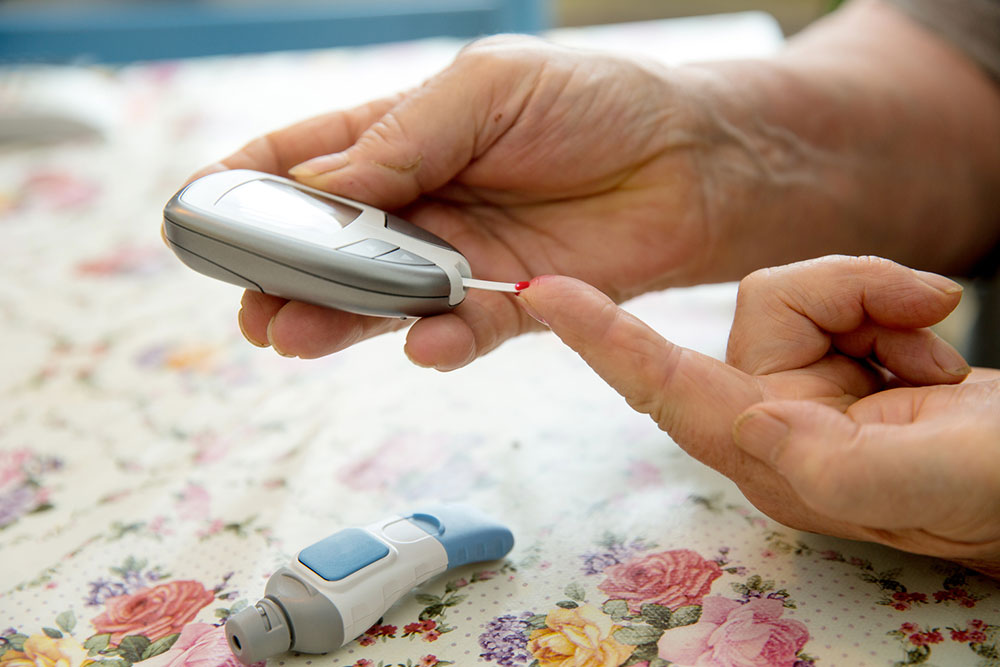Comprehensive Guide to Managing Hiatal Hernia Effectively
This comprehensive guide explores effective strategies for managing hiatal hernia, including lifestyle changes, medications, surgical options, and natural remedies. Learn how to alleviate symptoms, prevent complications, and improve quality of life through proven approaches tailored for this common digestive disorder. Early diagnosis and personalized treatment are key to successful management.

Comprehensive Strategies for Managing Hiatal Hernia
A hiatal hernia is a medical condition where a portion of the stomach protrudes upward through an opening in the diaphragm called the hiatus, which naturally allows the esophagus to pass from the chest cavity into the abdomen. This condition can be classified mainly into two types: sliding hernias and paraesophageal (fixed) hernias. In sliding hernias, the stomach and lower esophagus slide back and forth through the hiatus, whereas in paraesophageal hernias, part of the stomach remains displaced beside the esophagus. Many individuals with hiatal hernias may not experience symptoms, and minor cases often do not require immediate treatment. However, larger or more severe hernias can result in serious complications such as restricted blood flow, acid reflux, and esophageal damage.
Effective Management Approaches for Hiatal Hernia
Lifestyle and Dietary Modifications
Implementing specific lifestyle changes is fundamental in managing a hiatal hernia and minimizing symptoms. One of the most effective strategies is weight management—losing excess weight can significantly reduce abdominal pressure, which in turn helps prevent hernia progression and alleviates reflux symptoms. While weight loss might not reverse an existing hernia, it plays a crucial role in reducing the risk of complications and improving overall quality of life. A balanced, high-fiber, low-fat diet supports optimal digestion, reduces constipation, and decreases pressure on the stomach and diaphragm. Sufficient hydration, aiming for at least eight glasses of water daily, helps dilute stomach acid and prevents constipation. Additionally, avoiding trigger foods such as fried dishes, spicy foods, full-fat dairy, tomato-based products, citrus fruits, sodas, caffeine, alcohol, and excessive salt intake is crucial. Instead, focus on incorporating lean meats, fish, low-fat dairy products, whole grains, and vegetables into your meals. Quitting smoking is highly recommended because smoking relaxes the lower esophageal sphincter, increasing the likelihood of acid reflux and hernia symptoms.
Medical Treatment Options
Pharmacological intervention remains a cornerstone of managing hiatal hernia symptoms. Over-the-counter medications like antacids, which neutralize stomach acid, are often used for quick relief. For more targeted acid suppression, healthcare providers might prescribe H2 receptor antagonists or proton pump inhibitors (PPIs). H2 blockers decrease acid production, providing relief from heartburn and esophageal irritation. PPIs are more potent and act faster, significantly reducing acid secretion and facilitating healing of inflamed tissues. It is important to use these medications judiciously under medical supervision because long-term or excessive use can lead to side effects such as nutrient malabsorption, gastrointestinal disturbances, headaches, or dizziness. Always consult a healthcare professional before initiating any medication regimen to ensure the correct choice and dosage.
Surgical Interventions
Surgery is generally considered when conservative treatments fail or if the hernia causes significant complications such as esophageal obstruction, bleeding, or compromised blood flow. Early surgical intervention is often preferred to prevent hernia progression and further damage. The most common surgical approach is laparoscopic repair, which involves small incisions, minimal scarring, and faster recovery. In urgent situations, such as severe bleeding or organ perforation, open surgery might be necessary. Surgical procedures typically aim to return the stomach to its proper position and strengthen the diaphragm opening. Postoperative care and lifestyle adjustments are crucial to prevent recurrence and maintain good health.
Natural and Complementary Therapies
Several natural remedies and alternative therapies may help relieve hernia symptoms. Deglycyrrhizinated licorice (DGL), a form of licorice extract, is believed to protect the esophageal lining and reduce stomach acid levels. Ginger, consumed as tea or supplements, can soothe digestive discomfort and reduce heartburn, although excessive intake should be avoided. Some patients find relief through acupuncture or herbal therapies, but these should always be discussed with a healthcare provider to avoid adverse interactions and ensure safety. While scientific evidence varies regarding the efficacy of these treatments, they can be considered complementary options alongside traditional medical approaches.
Consulting with a healthcare professional is essential if you experience symptoms associated with a hiatal hernia. Accurate diagnosis, personalized treatment plans, and ongoing management can significantly improve quality of life and prevent progression of the condition. Many cases respond well to lifestyle modifications and medication, but in severe or complicated cases, surgical repair might be necessary. Early intervention is vital to prevent further health issues and ensure effective symptom control.





